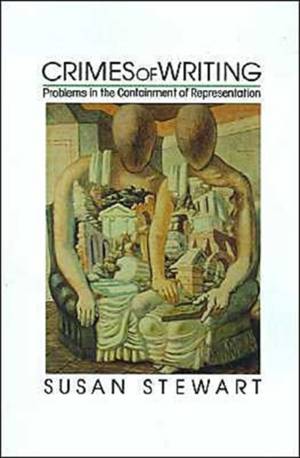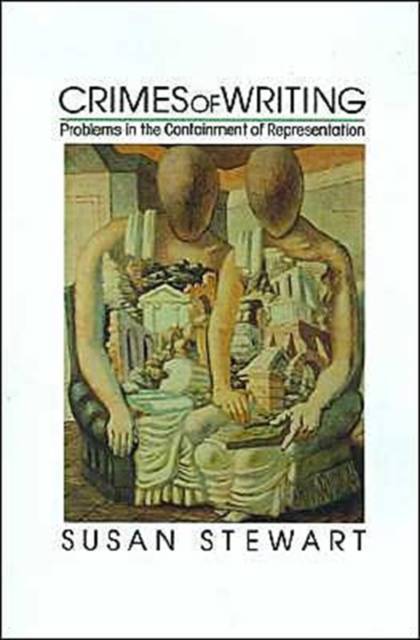
Je cadeautjes zeker op tijd in huis hebben voor de feestdagen? Kom langs in onze winkels en vind het perfecte geschenk!
- Afhalen na 1 uur in een winkel met voorraad
- Gratis thuislevering in België vanaf € 30
- Ruim aanbod met 7 miljoen producten
Je cadeautjes zeker op tijd in huis hebben voor de feestdagen? Kom langs in onze winkels en vind het perfecte geschenk!
- Afhalen na 1 uur in een winkel met voorraad
- Gratis thuislevering in België vanaf € 30
- Ruim aanbod met 7 miljoen producten
Zoeken
€ 313,95
+ 627 punten
Omschrijving
From the origins of modern copyright in early eighteenth-century culture to the efforts to represent nature and death in postmodern fiction, this pioneering book explores a series of problems regarding the containment of representation. Stewart focuses on specific cases of "crimes of writing"--the forgeries of George Psalmanazar, the production of "fakelore," the "ballad scandals" of the eighteenth and nineteenth centuries, the imposture of Thomas Chatterton, and contemporary legislation regarding graffiti and pornography. In this way, she emphasizes the issues which arise once language is seen as a matter of property and authorship is viewed as a matter of originality. Finally, Stewart demonstrates that crimes of writing are delineated by the law because they specifically undermine the status of the law itself: the crimes illuminate the irreducible fact that law is written and therefore subject to temporality and interpretation.
Specificaties
Betrokkenen
- Auteur(s):
- Uitgeverij:
Inhoud
- Aantal bladzijden:
- 368
- Taal:
- Engels
Eigenschappen
- Productcode (EAN):
- 9780195066173
- Verschijningsdatum:
- 15/08/1991
- Uitvoering:
- Hardcover
- Formaat:
- Genaaid
- Afmetingen:
- 149 mm x 218 mm
- Gewicht:
- 557 g

Alleen bij Standaard Boekhandel
+ 627 punten op je klantenkaart van Standaard Boekhandel
Beoordelingen
We publiceren alleen reviews die voldoen aan de voorwaarden voor reviews. Bekijk onze voorwaarden voor reviews.









